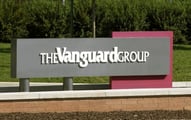
Office address: 50 Hudson Yards New York, NY 10001
Website: www.blackrock.com
Year established: 1988
Company type: investment company
Employees: 19,800+
Expertise: asset management, risk management, ETFs (iShares), fixed income, alternative investments, wealth management, retirement solutions, private equity, infrastructure, real estate, sustainable investing, financial technology
Parent company: N/A
Key people: Larry Fink (CEO), Rob Kapito (president), Joud Abdel Majeid (global head), Stephen Cohen (CPO), Ed Fishwick (CRO), Rob Goldstein (COO), Martin Small (CFO), Chris Meade (CLO)
Financing status: N/A
BlackRock is a global investment company from New York, offering asset management, advisory, and risk management services. The firm manages $11.5 trillion in assets as of October 2024 and operates in over 38 countries. With over 19,800 employees, the company serves clients in more than 100 countries, helping them achieve long-term financial well-being through innovative financial solutions.
BlackRock was founded in 1988 by Laurence Fink and seven partners, driven by a desire to manage assets with a focus on risk management and client interests. The company quickly grew, and in 1999, it launched Aladdin, its proprietary technology that transformed the risk management industry. During the 2008 financial crisis, the company was tapped by the Federal Reserve to assess Bear Stearns' assets, playing a crucial advisory role.
In 2009, it acquired Barclays Global Investors, becoming the world's largest asset manager and integrating both active and index strategies. In 2017, the company deepened its focus on investment stewardship, emphasizing the long-term value of purpose in profitability. By 2024, it partnered with Vestmark to boost model portfolios, further expanding its offerings for registered investment advisors.
BlackRock offers a wide range of investment products and services designed to meet the diverse needs of its clients. Below are the some of their key offerings:
BlackRock’s global team provides insights on markets, economies, and long-term strategies, helping clients navigate the complexities of investing. Whether it is a professional or a new investor, their services aim to support financial success while also empowering employees and giving back to communities.
BlackRock’s culture is built on a commitment to its clients, employees, and core principles. The company focuses on employee growth, offering benefits that support physical, emotional, and financial well-being. The firm provides various resources and benefits to keep employees engaged and balanced, some of which include:
The firm’s commitment to diversity, equity, and inclusion (DEI) is central to its success, fostering an environment where employees feel a sense of belonging. The company’s global platform thrives by incorporating diverse perspectives to deliver the best outcomes for clients. By embracing unique skills and experiences, they empower employees to collaborate effectively and contribute to a shared mission:
The company’s social impact focuses on making financial prosperity accessible to more people and communities. The BlackRock Foundation supports low- to moderate-income households by helping them save, invest, and build wealth. Initiatives include:
BlackRock’s approach to corporate sustainability focuses on long-term value for shareholders, employees, communities, and clients. The company is committed to transparency, providing stakeholders with meaningful sustainability-related information.
Laurence Fink is company’s chairman, CEO, and founder, also serving on the boards of NYU and the World Economic Forum. Before founding BlackRock in 1988, he was a managing director at The First Boston Corporation. Fink earned a BA in political science and an MBA in real estate from UCLA.
The company’s key leadership team includes notable figures who lead the firm’s operations across global markets:
To prepare for potential market volatility, BlackRock advises financial professionals to reduce risk and shift toward safer investment options. With uncertainty ahead, particularly due to macroeconomic concerns and the upcoming elections, the firm highlights the importance of defensive strategies like the BlackRock Flexible Income ETF (BINC). This strategic adjustment also reflects their broader move toward active management, signaling its belief in a more hands-on approach during turbulent times.
The company recently reached an $11.5 trillion milestone in assets under management by the third quarter of 2024. This growth was driven by strong client inflows, notably into ETFs, fixed income, and private assets. BlackRock is accelerating its push into private assets, following acquisitions like Global Infrastructure Partners, and continues to lead in both public and private markets.

Managed accounts sold by advisers deflect trend toward lower-fee money management as brokers work to maintain profits: Cerulli.
ETF issuers act like Dr. Frankenstein and combine popular strategies hoping the result will be greater than the sum of its parts.

MSCI says it will open the door to the world's hottest stock market, just not yet.

Labor Department proposal faces fund industry opposition and some supporters say safe harbor for index fund sales is unlikely.

Pensions & Investments survey finds fund giant still tops in managing retirement assets, followed by Fidelity. BlackRock is gaining ground, helped by target date, index funds.

With new presence in the ETF strategist game, Vanguard wins Envestnet, Cambridge and more retirement-plan business.

DoubleLine Capital founder warns advisers that unconstrained managers are taking too much risk.
On May 27, Deutsche Asset & Wealth Management liquidated the assets of its X-trackers target-date fund series consisting of five all-ETF funds.

Bond giant's latest target date funds invest heavily in the low-cost firm's ETFs.

Continued success will require more than marketing focus, top performing firms say.
CEO Faust calls remarks by BlackRock executives skeptical of the future of NextShares, an exchange-traded successor to mutual funds, 'off base.'

Facing outflows in its actively managed funds, the $2 trillion money manager lashes out against a popular measure that more advisers and investors are using to pick funds.

And does it matter? Report shows how mutual funds have been commoditized, but a few firms, including Vanguard and Fidelity, still stand out.
In 'grave strategic error,' mutual fund managers have allowed their products to be commoditized, a new report finds, but not all firms are suffering. <i>(Don't miss: <a href="//www.investmentnews.com/gallery/20150401/FREE/401009999/PH"" target=""_blank"" rel="noopener noreferrer">The first quarter's best and worst mutual fund groups</a>)</i>
